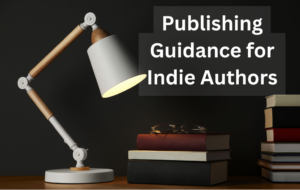What Is a Literary Agent?
Truly a literary agent for writers and in many ways a formidable advocate, he makes an author’s dream come true by presenting them to the right publisher. They negotiate necessarily good contracts, perhaps the best, for the author-to provide funding, exposure, and profile. The authors get careers because of their good industry connections, bring in international rights, and make bestsellers out of mere manuscripts.
Why Do You Need a Literary Agent?
If you’re serious about getting published by a traditional publishing house, a literary agent is almost essential. Here’s why:
- They have industry connections.
- They negotiate better deals.
- They handle legal aspects.
- They provide editorial guidance.
How to Find a Literary Agent?
Finding the right literary agent can be challenging, but it’s not impossible. Follow these steps:
Research Agents Who Represent Your Genre
Literary agents do not work with all genres, so you should look for agents who represent the specific type of book you are writing. Find agents who have sold more than one author similar to you and are working on behalf of reputable publishers. Visit their websites, check their client lists, and review recent deals to learn if they would be a good match for your work.
Check Submission Guidelines
Each of the agents has very particular submission instructions and their guidelines should be followed thoroughly. Some might request a query letter, while others could ask for a synopsis, or sample chapters. Not adhering to these can mean rejection right on the spot, so make sure you read and follow their preferences.
Prepare a Strong Query Letter
This query letter becomes your first impression, so make it strong and professional. The title of your book is just a short description of the reason that your story exists, plus what makes it unique from every other book out there. You can also include some brief author biography. Besides, keep it short, entertaining, and free from errors to entice that agent to read more.
Submit Your Manuscript
Once you’ve prepared your query, send it coupled with the other requested materials in the required format. Some agents prefer to receive emails for submission, while others have online forms for submission. Always proofread your documents and confirm that you are sending them to the right agent to maximize your success.
Be Patient and Persistent
This is a real slow business, and a response could take even weeks or months. Rejections are commonplace; they, however, do not imply that your book is not good enough but that it simply has not found an appropriate agent to defend it yet. Just keep improving the game, keep sending queries, and keep believing in your book until you can find the right representation for it.
What Do Literary Agents Look for in a Manuscript?
Agents receive countless submissions, so they look for manuscripts that are:
- Well-written and polished
- Marketable and unique
- Properly formatted
- Free of grammatical errors
How to Write a Winning Query Letter?
There’s an old adage that goes, “The first impression is the best impression.” That has never been more pertinent than concerning a query letter-The query letter should be a short (no longer than one page), slightly chatty yet endearing, and very to-the-point letter. Its structure should go like, hook the agent for a moment, give a few compelling lines about your book in a synopsis,
mention any credentials that are important to your book, such as writing experience, contests won, or maybe even being a graduate of an MFA program; coalesce into a closing thought thanking the agent with an invitation to contact you. With a good structuring and polishing, it will create a gratification.
How Long Does It Take to Get a Literary Agent?

The procedure varies, but in general, some months up to a year are needed. Some writers may land agents in a matter of weeks while others begin looking for agents much later in their careers. Patience and tenacity are the names of the game. Rejections are the norm, and they are part of the path to finding the right match. Continue to hone your query and manuscript to maximize your chances.
What Happens After You Get a Literary Agent?
- Refine your manuscript to make it more marketable.
- Pitch your book to top publishers for consideration.
- Negotiate the best possible deal on your behalf.
- Provide guidance throughout the publishing process.
- Offer career advice and long-term industry support.
Traditional Publishing vs. Self-Publishing
| Feature | Traditional Publishing | Self-Publishing |
| Upfront Costs | None | High |
| Control | Publisher’s decision | Full control |
| Time to Publish | 1-2 years | A few months |
| Royalties | Lower | Higher |
| Marketing Support | Yes | Limited |
Common Myths About Literary Agents
- Legitimate agents work on commission and do not charge upfront fees.
- Many agents accept debut authors if their work is strong and marketable.
- Agents seek unique voices and compelling storytelling, not just bestsellers.
- A well-crafted query letter can get an agent’s attention, even without prior publications.
- The right agent will guide and support you throughout your writing career.
What If a Literary Agent Rejects You?
No matter the rejections are good, it is not the end of the road. Work on your manuscript so that it becomes a better and more polished version of itself. Then, revise your query letter so that it is enticing and engaging. Submit to another agent if this one says no, for they may be a better match. Consider also other publishing options, such as self-publishing or smaller presses, to get your book out into the world.
Red Flags to Watch Out For
- Agents who charge reading fees.
- Agents with no verifiable sales history.
- Agents who promise guaranteed publishing.
How to Build a Relationship with Your Agent?
Communicate openly with your agent, keeping them updated on any changes or concerns. Always maintain a professional attitude in your interactions. Trust their expertise, as they have experience in the industry and know what works. Stay patient and realistic throughout the process, as success in publishing often takes time.
Conclusion
Finding an agent could be your best friend in an odd labyrinth called publishing. It can be a long process finding one, but perseverance, research, and a polished manuscript should boost your odds. If you care about traditional publishing, finding the right agent is a vitally important step. They will definitely lead you to publishers, negotiate contracts in your favor, and teach you how to actually go about things in this complicated arena. Your book stands a better chance of reaching its fullest potential with the right partner.
FAQs
Can I get published without a literary agent?
Yes, but it’s harder to access major publishers without one.
How do I know if an agent is legitimate?
Check their sales history, client list, and professional associations like AAR (Association of Authors’ Representatives).
What if I don’t hear back from an agent?
Follow up after a few months or move on to other agents.
Do I need a finished manuscript before querying?
For fiction, yes. For nonfiction, a proposal may suffice.
How many agents should I query at once?
Start with 5-10 agents and expand your list based on responses.








